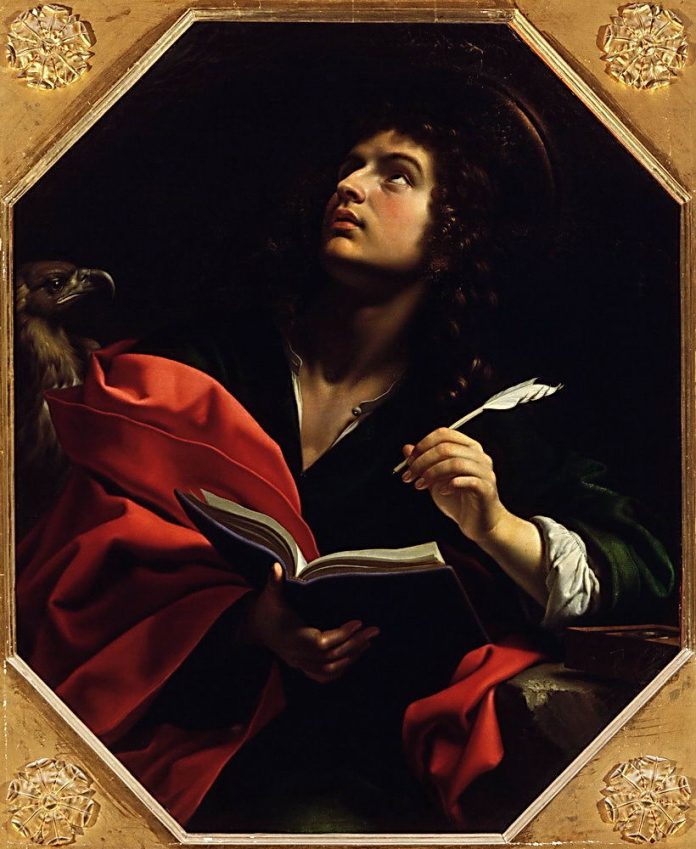On this third day of Christmas, we not only get three french hens, but, far better, we get to celebrate the beloved Apostle, Saint John the Evangelist, whose Gospel signifies most clearly the eternal existence of Christ as the Logos, the eternal, subsistent Word of the Father, Who has always been ‘with’ the Father from all ages, ‘God from God, Light from Light, true God from true God, consubstantial…’ homo-ousios, the ‘very same substance’ as God the Father, as the Church would formulate in the creed at the first ecumenical Council at Nicaea in 325, in condemning the Arians, who denied His eternal pre-existence (there was a time when he was not was their own watchword).
This is the Truth that is from God (1 John 4:2), the denial of which, as Saint John was to claim, is the very spirit of Antichrist, a spirit that would wreak havoc with the Faith in the worldwide apostasy before the end in that final ascendancy of evil.
But the choice is ours to make. We know that in that Trinitarian mystery in whose blessed company we hope to spend all eternity in a bliss beyond comprehension, Christ is the same God as the One Who spoke to Moses, the ‘I Am’, the divine Name, YHWH which, more than once, He claims for Himself (cf., John 8:58).
John’s Gospel is the most mystical and theological, following Christ along a different timeline, hence not classed amongst the other ‘synoptic’ Gospels, which recount His ministry from ‘one eye’s view’. His narrative is filled with meditations from Christ of rich theological depth – after all, why not, for here we have God speaking of God. I and the Father are one, and He who has seen me has seen the Father.
The mystery of the Incarnation which we celebrate in these Christmas days is the deepest and most significant truth ever revealed, and the most important question one can ask is ‘Who is Christ?’: Who do you say that I am?
Everything, here and in eternity, hinges upon the answer we give, and how we live out that response.
We know the reply the Apostle gave, as we read in today’s Gospel: ‘ He saw, and believed’.
May we too ‘see’, and believe, so that, as the Evangelist claims as his very purpose in writing his testimony, our own joy may be complete.
Saint John the Apostle, ora pro nobis…












